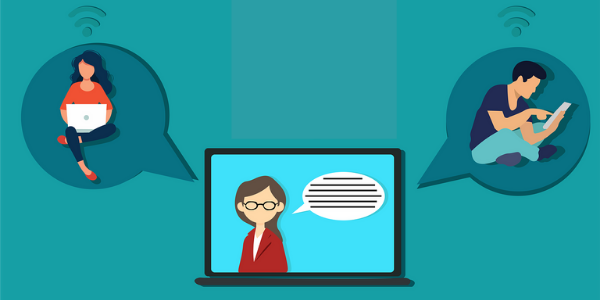18 February 2021
Like the rest of the world, the Learning and Development team
at the Accountability Initiative also had to quickly adapt to the needs of a changed world in 2020. 2019 was a significant year for us as we rolled out our flagship programme for grassroots-level development leaders – Hum Aur Humaari Sarkaar – in many cities across India. A few months into 2020, our plans to continue this were put on hold and we had to quickly change gears.
How did we do this in such a challenging and unpredictable time?
We adopted a two-pronged approach. In the early days of the pandemic and lockdown, we focussed our energy on online community engagement with our alumni. The Union and state governments were making policy announcements in different sectors such as education, health, nutrition. With the support of our state teams, we tried to compile all relevant information in a simple, easy-to-understand way on the programme website for our alumni, which we also regularly updated.
Our alumni WhatsApp groups acted as a platform for shared learning. Participants came forward to share their own experiences, photos, and resources from their work, ranging from awareness campaigns to food distribution campaigns. We also invited them to join a webinar in Hindi conducted by the Accountability Initiative on the role of NGOs in the pandemic.
Once the initial months passed, we still had to make a decision on how to orient our larger programme in this changed scenario. We expected our in-person courses to be on hold for some time. At the same time, we did not want to lose out on the momentum we had already gained in the previous year. After speaking with different stakeholders, we realised that the time was ripe to turn our in-person experiential learning programmes into an online one.
This was a mammoth task, involving our entire teaching and learning philosophy undergoing a transformation. The big challenge was to ensure an interactive, engaging, and informative experience online, while trying to retain the nuance and peer-learning aspects of in-person learning. The first steps were to find the right technology and tools to enable us to ‘convert’ our material to a suitable online form. We came up with a list of different tools that could help us create online content such as videos, infographics, voice-overs, interactive games, quizzes.
We then mapped out all the different content pieces and held brainstorming sessions around aligning tools with content. Working with our state-based teams present across the country proved to be a challenge at this time.
Sometimes
 team members would disagree if slides with voice-overs were indeed the
best way to teach something or if we needed something more interactive.
Other times, a consensus could not be found on the kind of examples we
should use. One activity of the offline course was a debate between
participants on the different facets of decentralisation. We finally
decided to replicate this debate in the form of a video, hoping that
online participants too got to experience rich and varied arguments.
team members would disagree if slides with voice-overs were indeed the
best way to teach something or if we needed something more interactive.
Other times, a consensus could not be found on the kind of examples we
should use. One activity of the offline course was a debate between
participants on the different facets of decentralisation. We finally
decided to replicate this debate in the form of a video, hoping that
online participants too got to experience rich and varied arguments.
We successfully launched two online courses by the end of 2020. The first, ‘Understanding State Capabilities’ was launched in October for young professionals and students, while the online version of ‘Hum aur Humaari Sarkaar’ was launched in December.
The past year has been full of new challenges and learnings. For one, it has given our team a crash course in creating online learning programmes. While peer-learning and human interaction is difficult to replicate in an online environment, it does offer convenience in terms of transcending boundaries of time and location, allowing us to reach a greater number of changemakers.
Going forward, the future lies in a combination of online and offline components in our learning programmes. As we head into a new year, we look forward to leveraging both our online and offline expertise and reaching out to many more development leaders.
Aamna is a Learning and Development Associate at the Accountability Initiative, Centre for Policy Research.
SOURCE ; CPR
Social media is bold.
Social media is young.
Social media raises questions.
Social media is not satisfied with an answer.
Social media looks at the big picture.
Social media is interested in every detail.
social media is curious.
Social media is free.
Social media is irreplaceable.
But never irrelevant.
Social media is you.
(With input from news agency language)
If you like this story, share it with a friend!
We are a non-profit organization. Help us financially to keep our journalism free from government and corporate pressure

















0 Comments